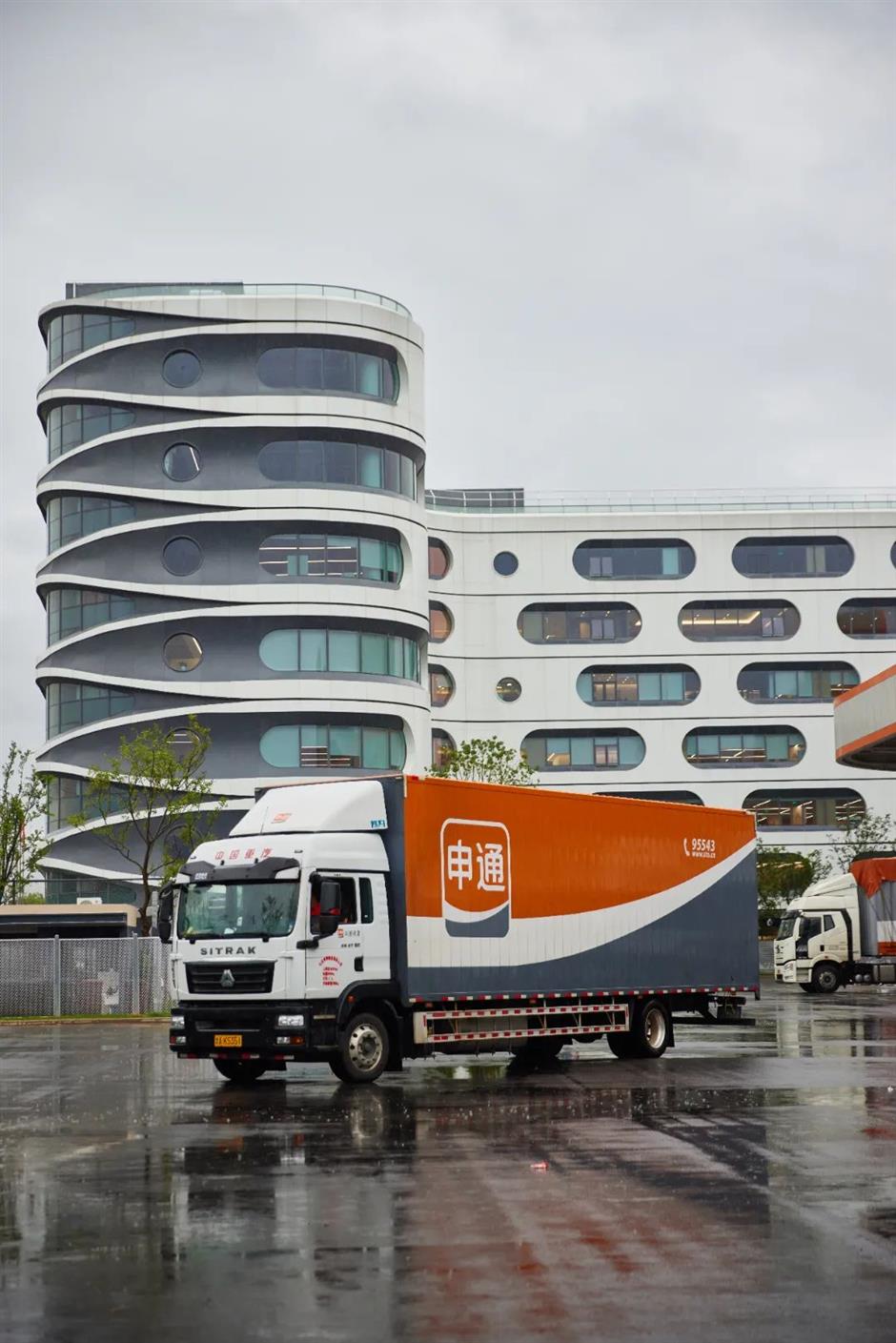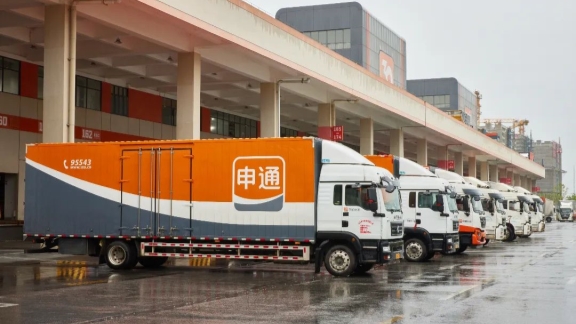

Phase II of STO’s Shanghai transfer center project in Qingpu began operations in June.
The courier sector has grown rapidly in Huaxin Town, which is positioned as a vital region of the “National Logistics Hub.”
Nearly 60 percent of China’s brand logistics enterprises have established headquarters or regional offices in Qingpu District.
STO, a leading domestic courier company, is celebrating its 30th anniversary this year.
The company began as a pioneer of private logistics enterprises in Tonglu County of Zhejiang Province, and then relocated to Qingpu. It has been promoting the reform and innovation of China’s logistics business for years.
STO is not the only courier company that hails from Tonglu; three other carriers — Yunda, ZTO, and YTO — also originated from the county’s Zhongshan Village, earning it the title of “China’s No.1 Courier Village.”
However, if Tonglu is the birthplace of China’s private logistics business, Qingpu is then the place where the country’s courier industry has prospered and grown rapidly.
Qingpu is Shanghai’s sole district that borders the provinces of Jiangsu and Zhejiang, as well as the city’s only national demonstration zone for the transformation and development of the express delivery business.
It is home to nine express delivery headquarters as well as 205 industry players.
It has been playing a key role in constructing the Yangtze River Delta digital line in recent years to boost regional development of a digital innovation belt by uniting diverse industrial parks and industry chains.
Qingpu, positioned as a commerce-and-service-oriented national logistics hub, prioritizes logistics, conventions and exhibitions, and businesses and trade as its key industries. It actively encourages the digitalization and high-end transformation of the logistics industry.
Last year, its express delivery and logistics industry generated 156.8 billion yuan (US$21.4 billion) in revenue, accounting for 85 percent of the city’s total and 15 percent of the national total.
STO’s rise paralleled the district’s rapid growth and stable economic environment. Initially, the company’s major focus was on customs declaration forms and trade and business orders between Shanghai and Hangzhou.
A year later, it shifted its focus to Shanghai, and in 2002, the company decided to move to Qingpu.
It registered in Qingpu in 2007 and purchased a land parcel in the district for development. In 2014, the company’s market share reached 16.52 percent, placing it first among domestic logistics companies.
STO was listed on the Shenzhen Stock Exchange in 2016, coinciding with the fast development of the Internet economy and the modernization of private businesses.
The district’s unique geographic location, continuously improved business environment, government service, and supporting policies have enabled more and more enterprises, such as STO, to expand and thrive.
According to the State Post Bureau of China, China’s express delivery business volume reached 70.3 billion pieces in the first seven months of this year, rising 15.5 percent over the same period last year.
On August 19, the number of STO packages topped 10 billion this year, two months earlier than in 2022. To meet the increasing demand, the company has increased its capacity since this year.
The second phase of STO’s Shanghai transfer center project in Qingpu, which includes a transfer center, new office buildings, and supporting infrastructure, began operations in June.
The company’s transfer hub in Shanghai has then grown to 130,000 square meters, making it the largest in the industry.
Its daily peak capacity exceeds 6 million pieces, providing e-commerce enterprises in Shanghai and Jiangsu and Zhejiang provinces with a one-stop logistics service that includes parcel collecting, storage, sorting, transportation, transfer and distribution.
This year, the company expects to implement 37 capacity expansion projects and 18 improvement projects, increasing capacity to more than 60 million daily.
STO, with an emphasis on digitization, has increased efforts in recent years to improve its current equipment. It has a green and eco-protection department committed to the research, development, and introduction of green packages, green transportation, and green distribution to reduce carbon emissions, according to Ye Kang, general manager of STO’s material management department.
The company has invested 900 million yuan in the field in recent years, and as a result, it has benefited from a 220 million yuan deduction from R&D fees as part of the government’s tax-friendly policies.
Qin Lei, vice president of STO, said the development of STO is inextricably tied to the assistance and support of Qingpu’s government authorities.

